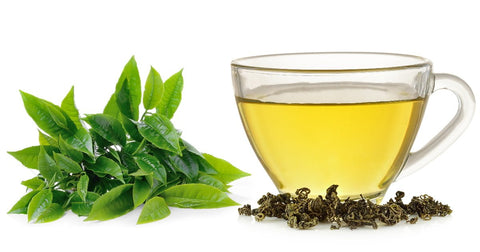Nasal congestion, often experienced as a stuffy nose, is a common ailment affecting millions worldwide. Typically, we attribute this uncomfortable condition to the usual suspects: seasonal allergies, the common cold, or environmental irritants like dust and pollution. However, what many might not realize is that the root cause of their nasal congestion could be sitting on their dinner plates. Beyond the well-known triggers, certain foods can play a significant role in exacerbating or even initiating nasal congestion.
The connection between what we eat and how we breathe might not be the first thing that comes to mind when seeking relief from a stuffy nose. Yet, it's a link that deserves closer examination. This article aims to shed light on the often-overlooked dietary culprits of nasal congestion. By exploring how specific foods can lead to inflammation and swelling in the nasal passages, we'll uncover the hidden triggers behind this common health issue.

Join us as we delve into the surprising world of food-induced nasal congestion. From understanding the basic mechanisms behind the condition to identifying the foods most likely to cause it, we're on a mission to provide you with the knowledge you need to breathe easier. Whether you're struggling with chronic nasal congestion or simply curious about the impact of diet on respiratory health, this exploration will offer valuable insights and practical advice for managing your symptoms through dietary choices.
Understanding Nasal Congestion
Nasal congestion is more than just an annoying symptom; it's a complex physiological response that affects our breathing, sense of smell, and overall comfort. Before diving into the dietary aspects, let's clarify what nasal congestion is, its symptoms, and the underlying anatomy involved in this condition.
What is Nasal Congestion?
Nasal congestion occurs when the nasal passages become swollen and inflamed, leading to a blocked or stuffy feeling. This sensation is often accompanied by increased mucus production. While not a severe health issue in most cases, congestion can significantly impact quality of life, disrupt sleep, and impair daily activities.
Symptoms of Nasal Congestion
The hallmark symptom of nasal congestion is the feeling of a blocked nose, which can vary from mild to severe. Other related symptoms may include:

- Difficulty breathing through the nose
- Increased mucus production, leading to a runny nose
- Sinus pressure or headache
- Reduced sense of smell and taste
Anatomy of Nasal Congestion
To understand how congestion occurs, a brief overview of nasal anatomy is essential. The nasal passages are lined with a mucous membrane that reacts to various irritants and infections by swelling and producing mucus. This is part of the body's defense mechanism against foreign particles and pathogens. However, when this response is excessive, it leads to the symptoms of congestion.
The turbinates, structures within the nasal passages that help humidify and filter the air we breathe, can become swollen due to allergies, infections, or other triggers. This swelling narrows the passages, making it harder for air to pass through.
Common Triggers of Nasal Congestion
While many are familiar with the usual suspects that cause nasal congestion, such as:
- Allergies: Pollen, dust mites, pet dander, and mold can trigger allergic reactions leading to congestion.
- Infections: Viral infections like the common cold or flu and bacterial infections can cause significant nasal symptoms.
- Environmental Factors: Smoke, pollution, and drastic changes in weather can irritate the nasal passages.
Understanding these common triggers sets the stage for exploring the less recognized, yet equally impactful, role that diet plays in nasal congestion. As we move forward, the focus will shift to how specific foods can contribute to this condition, offering new insights into managing and potentially alleviating symptoms through dietary awareness and modification.
The Link Between Diet and Nasal Congestion
While environmental factors and infections are well-documented triggers for nasal congestion, the impact of our diet on this condition is often less emphasized. Yet, there's a growing body of evidence suggesting that what we eat can significantly influence inflammation and congestion in the nasal passages. This section explores the fascinating connection between our dietary choices and nasal health, shedding light on how certain foods may lead to discomfort and congestion.
How Foods Can Cause Nasal Congestion

The relationship between diet and nasal congestion is rooted in the body's inflammatory response. Certain foods can trigger an immune system reaction, leading to inflammation that swells the nasal tissues and results in congestion. Additionally, some foods have a direct impact on mucus production or contain compounds that affect the nasal passages. Understanding these mechanisms is key to managing diet-related nasal congestion.
- Inflammatory Foods: Foods high in saturated fats, refined sugars, and certain preservatives can promote systemic inflammation, including in the nasal passages.
- Allergic Reactions: For some people, specific foods can trigger allergic reactions that manifest as nasal congestion among other symptoms. Common food allergens include dairy, nuts, and shellfish.
- Histamine-Rich Foods: Histamines are chemicals that play a role in the body's immune response. Foods that are high in histamines or that release histamines during digestion, such as aged cheeses and fermented products, can exacerbate nasal congestion.
Histamines and Nasal Congestion
Histamines are particularly noteworthy in the context of diet-induced nasal congestion. When consumed in large amounts through histamine-rich foods, these compounds can mimic the symptoms of an allergic reaction, including nasal congestion, sneezing, and itching. The body's capacity to break down histamines varies from person to person, which explains why some people are more susceptible to the effects of histamine-rich foods than others.
Foods and Mucus Production
Another aspect of how diet influences nasal congestion is through the modulation of mucus production. Certain foods are believed to increase mucus production, which can worsen congestion. Dairy products, for example, have long been thought to increase mucus, although scientific evidence on this matter is mixed. Nonetheless, many people report a link between consuming dairy and experiencing increased nasal congestion.
Understanding the Individual Response

It's important to note that the impact of diet on nasal congestion is highly individual. What triggers congestion in one person may have no effect on another. This variability is due to differences in immune system responses, food sensitivities, and genetic predispositions. Recognizing and respecting these individual differences is crucial when considering dietary adjustments to alleviate nasal congestion.
In summary, the connection between diet and nasal congestion is complex and multifaceted, involving inflammatory responses, allergic reactions, and the effects of specific compounds found in foods. By acknowledging and understanding these links, people can make informed dietary choices to help manage their nasal congestion more effectively.
Common Culprits: Foods That Trigger Nasal Congestion
Identifying specific foods that can trigger nasal congestion is a crucial step towards managing and potentially alleviating this uncomfortable condition. While individual reactions may vary, certain foods have been commonly reported to contribute to congestion. This section delves into these dietary culprits, providing insights into how they may cause nasal symptoms and offering suggestions for alternatives.
Dairy Products
Why They Can Be Problematic: Dairy products, such as milk, cheese, and yogurt, are often cited as contributors to nasal congestion. The theory is that dairy can thicken mucus and promote its production, although scientific evidence on this matter is not definitive. However, many people report an increase in congestion after consuming dairy, especially those with a sensitivity to lactose or dairy proteins.
What to Try Instead: Plant-based milk and cheese alternatives made from almonds, oats, or soy can be excellent substitutes. These options do not have the same effect on mucus production and are well-tolerated by those with dairy sensitivities.
Gluten-Containing Grains
Why They Can Be Problematic: Gluten, a protein found in wheat, barley, and rye, can lead to nasal congestion in people with gluten sensitivity or celiac disease. This reaction is due to the inflammatory response triggered by gluten in susceptible people.
What to Try Instead: Gluten-free grains like quinoa, rice, and buckwheat are great alternatives that do not trigger the same inflammatory response. Numerous gluten-free products are now available, making it easier to avoid gluten without sacrificing variety in your diet.
Histamine-Rich Foods

Why They Can Be Problematic: Histamines are chemicals that can trigger symptoms similar to allergic reactions, including nasal congestion. Foods high in histamines include aged cheeses, fermented foods (such as sauerkraut and kimchi), smoked meats, and certain fish. People with histamine intolerance may find that these foods exacerbate their nasal congestion.
What to Try Instead: Opting for fresh foods and avoiding aged or fermented products can help manage histamine-related nasal congestion. Fresh meats, fruits, and vegetables are low in histamines and less likely to trigger congestion.
Other Potential Triggers
- Spicy Foods: While spicy foods can temporarily relieve congestion by thinning mucus, for some, they can also lead to inflammation and worsen symptoms.
- Alcohol: Alcohol can increase blood flow to the nasal tissues, leading to swelling and congestion. Red wine, in particular, is high in histamines, which can be problematic for those with sensitivities.
- Certain Fruits and Vegetables: Some fruits and vegetables contain compounds that can release histamines or trigger allergic reactions in sensitive people, leading to congestion.
Tailoring Your Diet to Reduce Nasal Congestion
Identifying food triggers is a personal journey, as reactions can vary widely from person to person. Keeping a food diary can be an invaluable tool in this process, helping to pinpoint which foods are associated with increased nasal congestion. Once potential triggers are identified, experimenting with dietary adjustments can provide insights into how specific foods impact your symptoms.
It's also worth noting that while avoiding certain foods may help reduce nasal congestion, it's essential to ensure that your diet remains balanced and nutritious. Consulting with a healthcare professional or a dietitian can provide guidance on making dietary changes without compromising nutritional intake.
In conclusion, while the connection between diet and nasal congestion is complex and highly individual, being mindful of how certain foods affect your symptoms can be a key strategy in managing and reducing nasal congestion. By paying attention to the foods that may trigger your symptoms and making informed dietary choices, you can take an active role in improving your nasal health.
Identifying Your Triggers
Managing diet-induced nasal congestion begins with identifying the foods that trigger your symptoms. This process can be intricate, as reactions to foods can vary widely among people. However, with careful observation and a few strategic approaches, you can pinpoint the foods that are likely causing your discomfort. This section outlines steps to help you identify your dietary triggers and suggests methods to avoid or replace these foods effectively.
Keeping a Food Diary
The first step in identifying your food triggers is to keep a detailed food diary. This diary should include everything you eat and drink, along with any symptoms of nasal congestion you experience. Here's how to do it effectively:

- Record Everything: Write down every meal, snack, and drink, including the time of consumption.
- Note Symptoms: Keep track of any nasal congestion symptoms, their severity, and the time they occur.
- Look for Patterns: After a few weeks, review your diary to identify any patterns between what you eat and your symptoms.
A food diary can reveal surprising insights into how your diet affects your nasal congestion and is a valuable tool for sharing your findings with healthcare professionals.
The Role of Elimination Diets
An elimination diet involves removing suspected trigger foods from your diet for a period, then gradually reintroducing them one at a time and observing the effects. Here's a basic approach to conducting an elimination diet:
- Eliminate Suspected Triggers: Based on your food diary or common culprits, eliminate foods that you suspect may be causing your symptoms.
- Monitor Symptoms: Continue to keep a diary of your symptoms during the elimination phase.
- Reintroduce Gradually: After a few weeks, begin reintroducing the eliminated foods one at a time, leaving several days between each reintroduction to accurately assess the impact.
This method can help isolate specific foods that contribute to your nasal congestion, providing clear evidence of your triggers.
Allergy Testing and Professional Guidance
For some, identifying food triggers through a diary and elimination diet may not be enough. In these cases, allergy testing and consulting with a healthcare professional can provide additional insights. Allergy tests, such as skin prick tests or blood tests, can identify specific food sensitivities. A healthcare provider can also offer guidance on managing your diet and symptoms, ensuring that your approach to identifying and avoiding triggers is both safe and effective.
Frequently Asked Questions
Can certain foods really cause nasal congestion?

Yes, certain foods can trigger nasal congestion in some people. This is often due to an inflammatory response, allergies, or sensitivities to specific components in foods, such as histamines, dairy proteins, or gluten. Identifying and avoiding these triggers can help manage congestion.
How do dairy products contribute to nasal congestion?
Dairy products are believed to contribute to nasal congestion by thickening mucus and potentially increasing its production. This effect, however, may vary from person to person, and not everyone may experience increased congestion from dairy.
What are histamine-rich foods, and why do they cause congestion?
Histamine-rich foods include aged cheeses, fermented products, and certain alcoholic beverages. Histamines can trigger symptoms similar to allergic reactions, including nasal congestion, because they can cause inflammation and swelling in the nasal passages.
How can I find out if my nasal congestion is related to my diet?
Keeping a detailed food diary and noting when congestion occurs can help identify potential dietary triggers. An elimination diet, where you remove suspected triggers and then gradually reintroduce them, can also be effective. Consulting with a healthcare professional for testing and advice is recommended for accurate diagnosis and management.
Are there any home remedies or lifestyle changes that can alleviate nasal congestion?
Yes, several non-dietary strategies can help alleviate nasal congestion. These include staying hydrated, using saline nasal sprays or irrigation techniques like neti pots, maintaining good air quality with humidifiers and air purifiers, and engaging in regular, moderate exercise. Reducing stress and ensuring adequate sleep are also beneficial in managing congestion.
Conclusion
Nasal congestion, a seemingly simple yet profoundly impactful condition, can stem from a variety of causes, including dietary triggers that are often overlooked. Through this exploration, we've uncovered how specific foods can lead to congestion, the importance of identifying personal triggers, and the steps you can take to manage symptoms through dietary modifications. Additionally, we've highlighted the significance of complementing these dietary changes with other lifestyle adjustments and remedies to alleviate nasal congestion more effectively.
Recognizing the link between what we eat and how we breathe opens up new avenues for managing nasal health. While individual responses to dietary changes can vary, the general principle of monitoring and adjusting your diet offers a proactive approach to reducing nasal congestion. This journey is not just about eliminating certain foods but about embracing a holistic perspective on health that considers the intricate connections between diet, lifestyle, and well-being.
Seeking advice through allergy tests, consultations with specialists, and dietetic services provides essential insights and customized recommendations. Although modifying your diet may not completely eliminate joint pain, it can greatly improve overall health and quality of life. The food intolerance test kits produced by Advance Food Intolerance Labs (AFIL) offer a practical and precise method for people aiming to pinpoint their food intolerances.
Watch AFIL test kits testimonial videos click here
References:
- Naclerio, Robert M., Claus Bachert, and James N. Baraniuk. "Pathophysiology of nasal congestion." International journal of general medicine (2010): 47-57.
- Corey, Jacquelynne P., Steven M. Houser, and Bernard A. Ng. "Nasal congestion: a review of its etiology, evaluation, and treatment." Ear, nose & throat journal 79.9 (2000): 690-702.
- Raphael, Gordon, Mindy Hauptschein Raphael, and Michael Kaliner. "Gustatory rhinitis: a syndrome of food-induced rhinorrhea." Journal of allergy and clinical immunology 83.1 (1989): 110-115.
- Stewart, Michael, B. J. Ferguson, and Len Fromer. "Epidemiology and burden of nasal congestion." International journal of general medicine (2010): 37-45.
- James, John M. "Common respiratory manifestations of food allergy: a critical focus on otitis media." Current allergy and asthma reports 4.4 (2004): 294-301.


.png?v=1737390083)
.png?v=1737187409)


